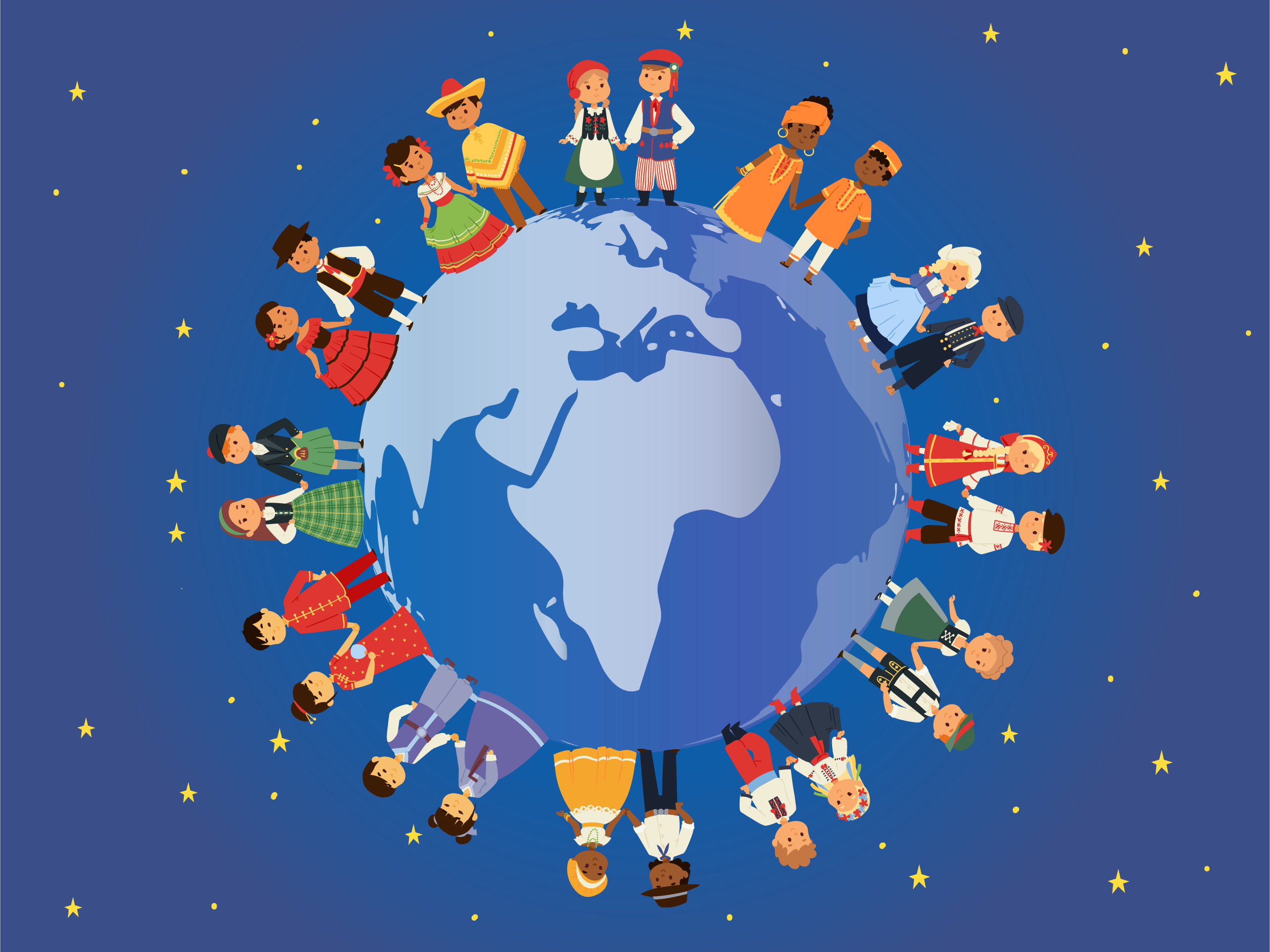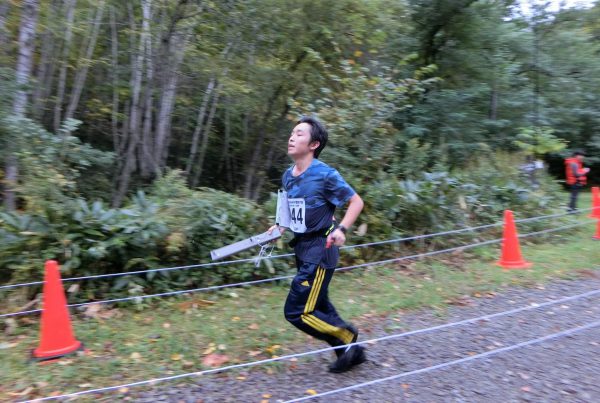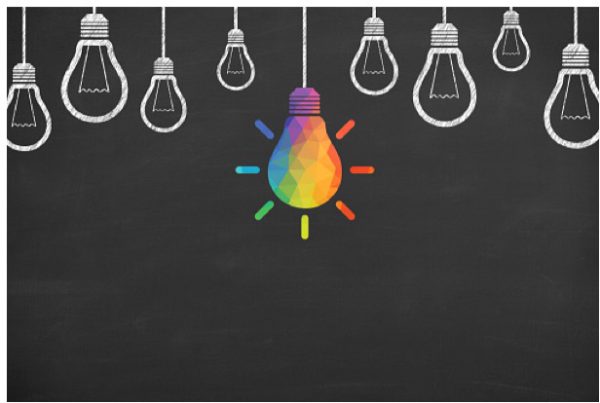When living in a globalized world, is it important for people to have the capability to relate to people and find ways to co-exist amidst differences. The same applies to students studying in an international environment.
With higher education becoming increasingly global, Cultural Intelligence is an often-overlooked soft skill that plays an important part in ensuring a harmonious environment in higher learning institute.
Since October 2020, the Nagaoka University of Technology began offering Cultural Intelligence as an elective course for students in the Department of Science of Technology Innovation. While students from other departments are not awarded credits, they are also encouraged to attend the course.
The Nagaoka Review team spoke with students from the Cultural Intelligence class offered in April 2021 to learn more about their experience, their thoughts on the course and how it has benefit them.
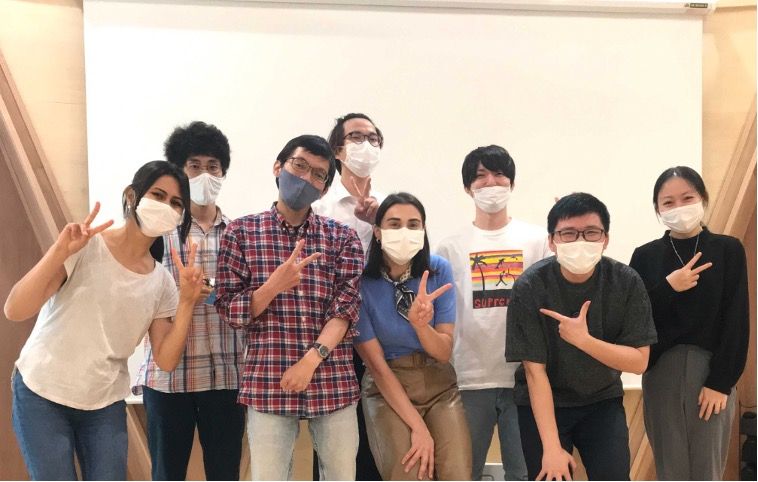
Picture taken at the end of the Cultural Intelligence course (April semester). From left: Amal Labidi, Takumi Yasuda, Kharisrama Trihatmoko, Ha Phuong Nam, Professor Ana Damaschin (middle, in blue), Reiji Nakashima, Luu Xuan Chinh and Nguyen Thu Huong.
What is Cultural Intelligence
According to Cultural Intelligence Center, Cultural Intelligence, or in short CQTM, is the capability to function effectively across national, ethnic, and organizational cultures. The approach includes four different capabilities to enable one to meet the demands of today’s borderless world.
Reiji Nakashima, a master’s student from the Nagaoka University of Technology described Cultural Intelligence as “the ‘how’ to deal with people from different cultures”, further elaborating on his experience working with people in the laboratory, in class, with his friends, as well as the working environment.
From the perspective of an international student studying in Japan, second-year doctoral student Ha Phuong Nam shared his thoughts on his experience.
“As an international student at our university, we exist in a culturally diverse environment. Prior to taking the course, I did not know what the root cause of the many experiences I had. Through the class, I learned more about cultural differences and cultural diversity. This has helped me understand more about my experiences with diversity.”
– Ha Phuong Nam
Why Cultural Intelligence?
Is Cultural Intelligence that important, one might ask? In 2006, Peter Drucker coined this expression, “Culture eats strategy for breakfast”. What does he mean by that?
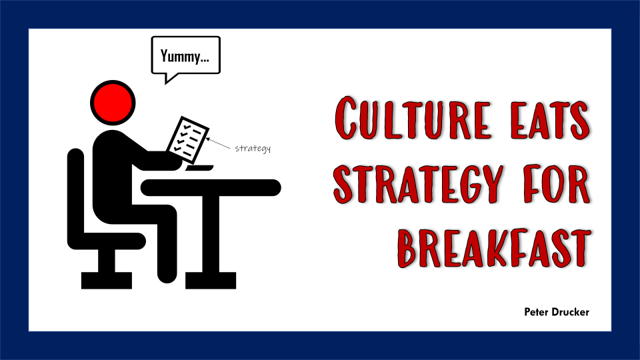
Success in business is determined by the culture of the company, regardless of the solidness of the strategy. If the people executing it are not culturally aligned with the company, the company will struggle with the strategy execution. Company culture exists even without the effort put into creating it.
The same can be said about families, universities, clubs, even at a martial arts dojo. Where there is a gathering of people, culture will prevail. Cultural Intelligence is an important soft skill that is necessary to navigate life.
With all that is said about culture, what is Cultural Intelligence all about? Kharisrama Trihatmoko, a first-year doctoral student shared about the 4 important techniques in CQ: Drive, Knowledge, Strategy, and Action.
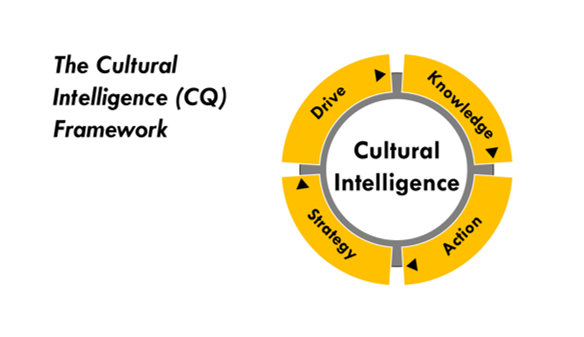
“We need to know the WHY we want to deal with Culture (Drive), the How to deal with that (Strategy), and IMPROVEMENT of skills in dealing with challenges on a daily basis (Action).”
– Kharisrama Trihatmoko
From Apathy to Enlightenment
Fish don’t know they’re in water. If you tried to explain it, they’d say, “Water? What’s water?” They’re so surrounded by it that it’s impossible to see. They can’t see it until they jump outside of it.
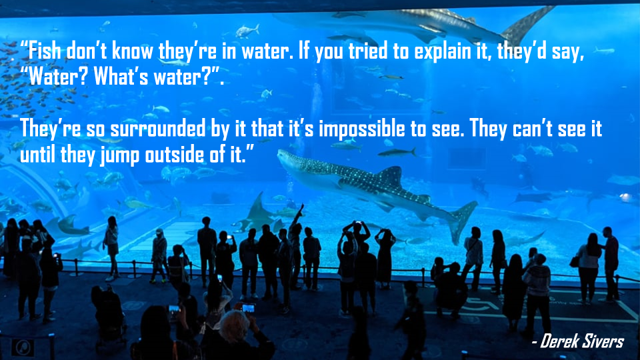
Can fish see water? Image by the author
Derek Sivers is an entrepreneur and author who likens culture to the analogy of fish and water. Just like many of us, Sivers realized he could not see the American culture until he was outside of the environment. He learned that his culture is not in the center of the universe, but rather off the edge. There is no right or wrong in that, but it is just one of the many options.
A third-year doctoral student from the Department of Electrical, Electronics, and Information Engineering, Takumi Yasuda was glad he took the Cultural Intelligence class at the university. Learning from Professor Damaschin and his classmates, Yasuda-san concluded that Cultural Intelligence is a fundamental ability that doctoral students should have, considering their opportunity of working internationally.
“I knew before the class that discrimination is bad, but back then I did not know how to manage our differences. Through this class, I have learned more about diversity and what we can do to manage our differences.”
– Takumi Yasuda
The Importance of Facilitation
“Why pay $10,000 for a well-known life coach when you can buy his book for $50?”
Anybody who has ever experienced working with a world-class life coach will understand the difference between learning from live sessions and learning from a book. Facilitators make a huge difference to the experience of the participants, bringing words to life and creating the right atmosphere for learning.
When asked about her interest in the class, Amal Labidi, a 2nd year master’s student said, “I joined the Cultural Intelligence (CQ) class not for the credits because I do not get any, but out of curiosity and interest for this subject”.
What were her key takeaways from this class?
“I personally appreciate the way this class was taught; based on communication and discussions. We had to answer questions like, “What do you think?”, “How do you see this?”, or “How would you react?”. Through the questions, I find myself expressing thoughts I have never asked myself about. We started to see our differences, learning from each other as we realize our own mistakes.”
“The fact that Professor Damaschin is young, like many of us, and living a new life experience in Japan, she made the class environment (or what she calls it “the class culture”) very friendly and warm. Everybody speaks openly, sharing our experiences and learn to understand each other better”.
– Amal Labidi
Diversity is Key
When it comes to learning what Cultural Intelligence is all about, having diversity is key. Nothing prepares one better than to have real-life experience working with people from different cultures. Even a simple discussion on lifestyle choices and cuisines could bring people into history and family values that shape a person’s culture.
When third-year doctoral student Luu Xuan Chinh stepped in the class, he was immediately greeted by a diversity of students from Japan, Tunisia, Indonesia, and Vietnam and his professor from Moldova.
“Our professor is from Moldova in Europe with a wealth of experience in Cultural Intelligence. During lectures, we were encouraged to share our viewpoints and personal experiences.”
– Luu Xuan Chinh
The key to creating a conducive learning environment lies in the ability of the facilitator to help individuals see each other through the Cultural Intelligence lens. When an environment becomes static with the same individuals, new perspectives might not be achieved. An introduction of people from different background is the answer to continuing the conversation.
Nguyen Thu Huong, a third-year doctoral student weighs in her opinion on the differentiating point she experienced in the Cultural Intelligence course she experienced in April 2021.
“A great highlight of this class is the list of guest speakers. All guests invited to the class came with a lot of experience in different aspects in life. All questions from students were answered in the closed conversations we had with the subject matter experts.”
– Nguyen Thu Huong
Luu Xuan Chinh also added that the professor was in fact, an important “bridge” connecting students to special guests from Toyota Motor Corporation, Catalyst4MBA, and FocusCore Japan. Through conversation with guest speakers, students gained different perspectives from recruiters, business leaders, and thought leaders as they dispensed helpful advice for future career.
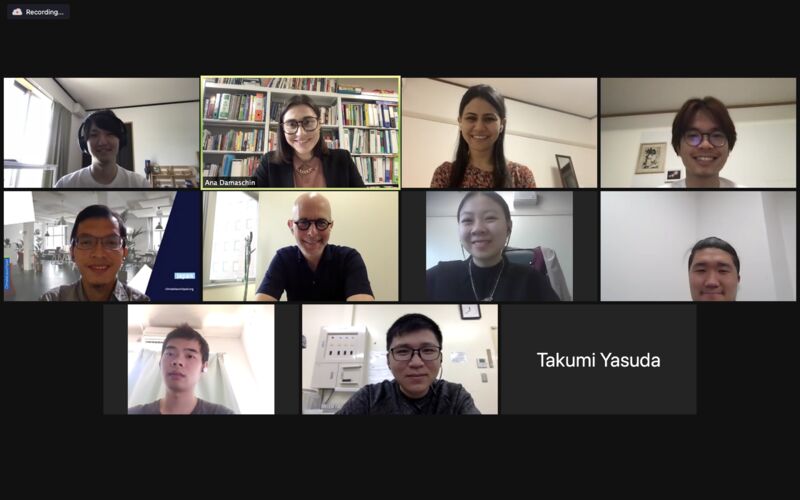
Guest speaker Dr. David Sweet (middle), Founder of FocusCore Group shared some insights with students.
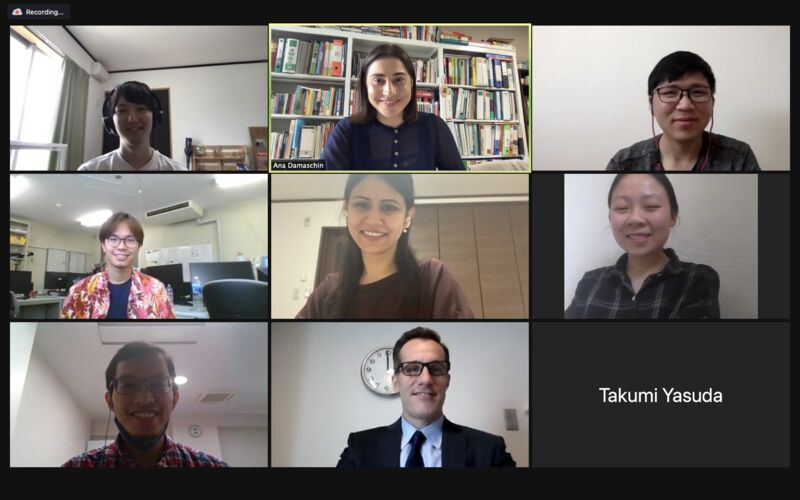
Damon Mackey (center-bottom), President and CEO of Catalyst4MBA as a guest speaker in the class.
Practicality of CQ
Through his experience in the Cultural Intelligence class offered in April 2021, Kharisrama concluded that the class was not only interesting but adds a layer of practicality to the experience of the students. Real business cases were used for discussion in class, further challenging students to think further and practice their newly honed skills by interacting with classmates and bringing the experience outside of the classroom.
“As university students, we interact extensively with people every day. We interact with students from multicultural backgrounds, and many of us would possibly pursue international careers in the future. I find what I have learned to be very practical, and I highly recommend this course to other students, no matter which course or department you are in the Nagaoka University of Technology.”
– Kharisrama Trihatmoko
Nakashima-san echoes Kharisrama’s thoughts, hoping for more students to consider developing their cultural intelligence to become global high quality engineers.
“I am pursuing a career opportunity in an international company. If I did not have the opportunity to take this class, I believe I might face problems without realizing or knowing how to navigate through. I now have more confidence to work in an international setting, much thanks to the Cultural Intelligent class I have attended this April.”
– Reiji Nakashima
Amal believes that engineers will find themselves in situations whereby good CQ would help navigate better. Engineers will have to communicate with different stakeholders, whether they are colleagues, clients, or even simply dealing with people with different perception and thoughts. And this may be the key to solving misunderstandings, save energy and time in many situations.
In a Culturally Intelligent Nutshell
With technological advancement experienced over the decades, the world has become borderless. Soon, it would be unavoidable for people to only mingle with people from the same culture and background. Cultural Intelligence is an important soft skill one should have to help them navigate life.
What would you do if you learned that the success of your endeavor requires you to engage with the cultural dimension? Would you consider learning how to navigate the cultural treasure trove to succeed in life?
Main image via Adobe Stock
Special Courses available at the Nagaoka University of Technology:
Cultural Intelligence is one of the many unique and practical business-driven courses are being offered at the Department of Science of Technology Innovation (STI) to develop holistic and well-rounded engineers and researchers. Other courses such as Social Innovation, Business Communication and Digital Marketing will be held in the September 2021 semester. Non STI students are welcome to register and participate in the courses offered.
More information regarding the three guest speakers were invited to the April semester Cultural Intelligence course:
- Atsushi Sugiyama, Director, Member of the Board, Toyota Kyushu; CEO of Hello Life
- Dr. David Sweet, Founder of FocusCore Japan
- Damon Mackey, President and CEO of Catalyst4MBA

